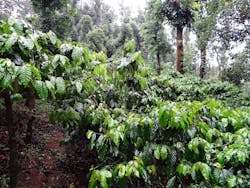Costa Rica Lifting 30-Year Ban On Robusta
According to Reuters, Costa Rica is lifting a 30-year ban on the robusta coffee trees, a crop which is more resistant to diseases and increasing temperatures than arabica, said the Minister of Agriculture. The initiative to produce robusta varities still needs to be signed by President Luis Guillermo Solis before it takes effect.
Although Costa Rica is one of the region's smaller coffee producers, its known for its prized arabica varieties. Robusta trees do better in lower elevations, and have a stronger and more bitter taste, usually used to make instant coffee, added to blends, and used to create froth in some espressos. The minister said that ICAFE will decide where crops will be planted and what varieties will be allowed. This move toward robusta comes with changing climates make robusta farming more attractive, as many Latin American farmers are beginning to plant the cheaper crop.
Robusta is better able to survive in warmer temperatures, and due to its higher-levels of caffeine the tress are hardier against some diseases and pests.
Some in the industry see robusta as a threat to the global reputation Costa Rica has gained for their exportation of high-quality arabica beans. The minister responded to this by saying that there would be designated areas for robusta, and communication with farmers. He also said that robusta is a good option for areas too hot and humid for arabica.
